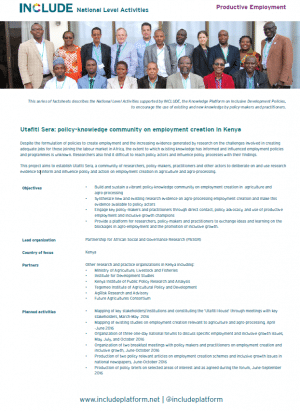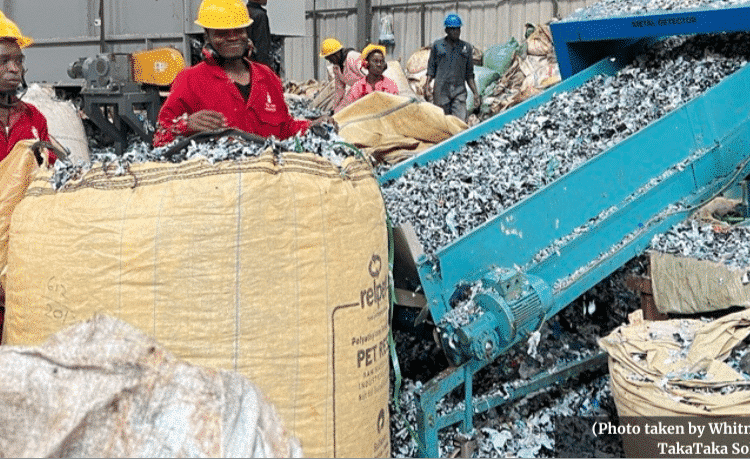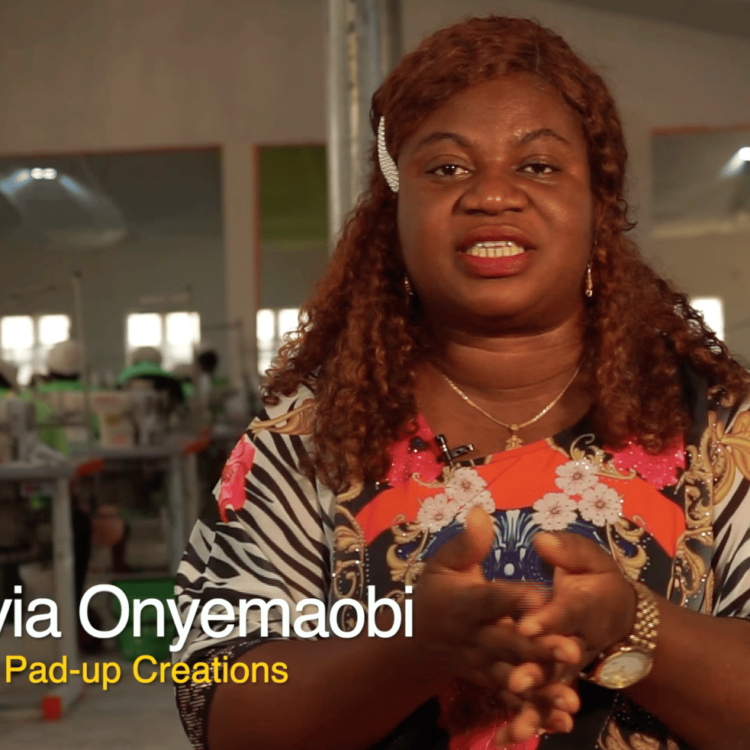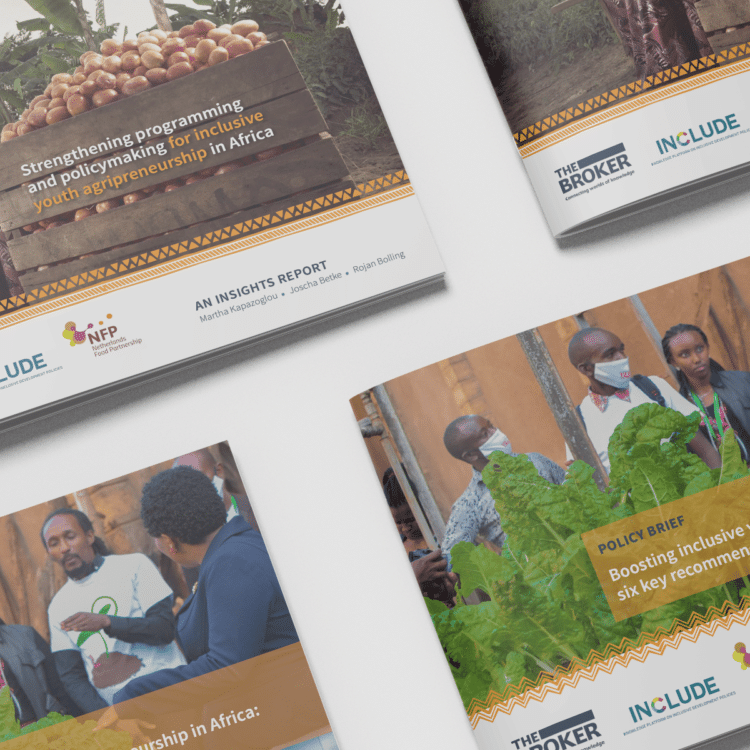
Job creation remains a challenge and a policy issue in many countries. In Kenya, this has partly been attributed to stagnation of the industrial sector and limited transformation of agriculture. Whereas research has shown that agriculture and agro-processing value chains have potential to generate wage employment and promote inclusive development, it is not clear whether and how available research evidence has informed policies in these value chains. To address this, an innovative approach is required to bridge the research evidence and policy action gap. Consequently, Utafiti Sera, a research-policy community aims to bring together policy actors to work together to advance policy action on employment creation in Kenya.
This one of the policy-knowledge communities that are initiated by Platform members and supported by INCLUDE. With these communities, INCLUDE encourages the use of existing knowledge in policy engagement in African countries and facilitates the uptake of the findings of NWO-WOTRO & INCLUDE research projects at the national level or fills gaps in INCLUDE’s knowledge agenda not covered by these projects.




